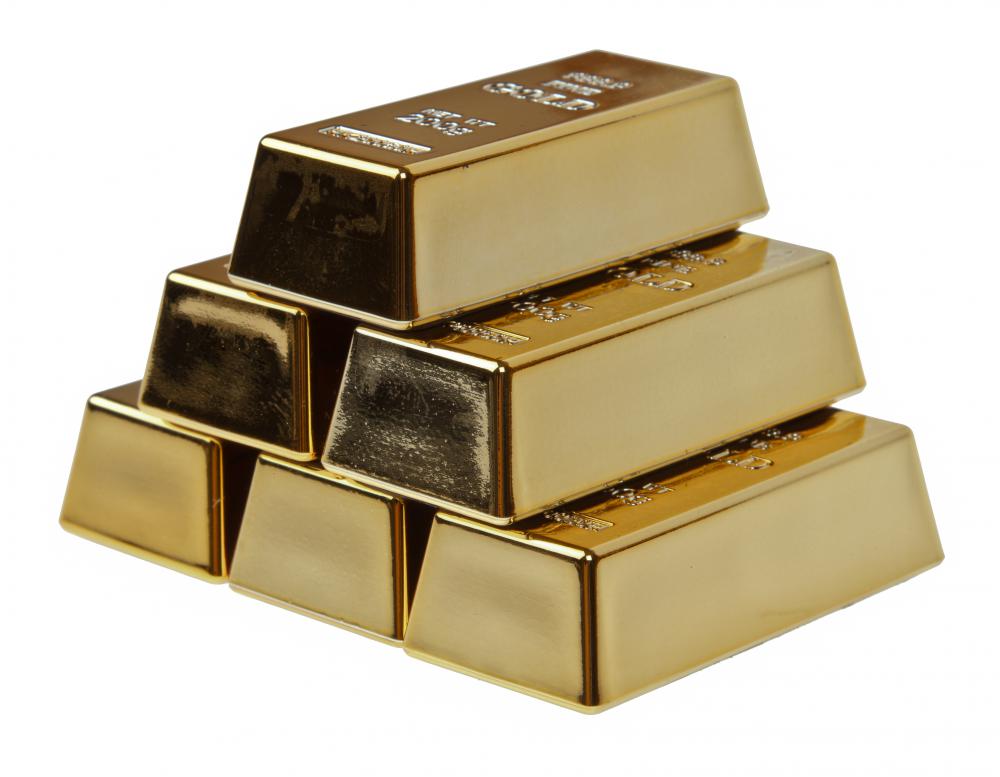At WiseGEEK, we're committed to delivering accurate, trustworthy information. Our expert-authored content is rigorously fact-checked and sourced from credible authorities. Discover how we uphold the highest standards in providing you with reliable knowledge.
What is a Gold ETF?
A gold ETF is an exchange traded fund based directly or indirectly upon the value of gold at any given moment. Exchange traded funds allow investors to purchase stocks based on the value of a particular market that does not offer its own stock or bond certificates. This includes gold, other precious metals, and various commodities. A gold ETF offers investors the ability to invest in gold without having to take physical possession of the precious metal, while also avoiding spot prices, strike prices, and dealer negotiations. It provides the liquidity of a traditional stock investment coupled with the performance potential of gold.
The purpose of investing in a gold ETF is to enjoy the primary benefit of gold as a store of wealth. Gold ETFs allow the investor a level of financial flexibility commonly unavailable in traditional gold investments. This flexibility can lead to some confusion for novice investors, due to the common misconception of what is actually being purchased with an ETF. The gold ETF investor does not at any point own gold. The investor simply owns a stock or bond share of a fund explicitly set up to trace the ebb and flow of various gold markets, through gold-backed securities and futures.

A gold ETF should not be confused with stocks for gold mining, trading or finishing companies. Novice investors sometimes mistakenly assume that a gold note or certificate is the same as a gold ETF. ETFs based on gold mirror the daily spot price only. They are not related to the performance of any company that is associated with the extraction, production or evaluation of gold. ETFs are popular methods for investors to take advantage of certain market metrics in various commodities without having to take on the additional risk of owning and possessing the commodity itself.

To invest in a gold ETF, an investor's first step is to find a broker who specializes in exchange traded funds that have a reputation for success in precious metals. The precious metals are unique and work under a different set of influences than other commodities such as oil, corn, coal and natural gas. Part of this is due to the different method for gauging demand with precious metals. The demand for food and fuel-based commodities rests on a simple calculation of overall supply versus a steadily rising level of ongoing demand. Precious metals do not enjoy this type of demand, therefore, an investor needs to ensure that the broker chosen for the management of a gold ETF has extensive experience with precious metals.
AS FEATURED ON:
AS FEATURED ON:












Discuss this Article
Post your comments